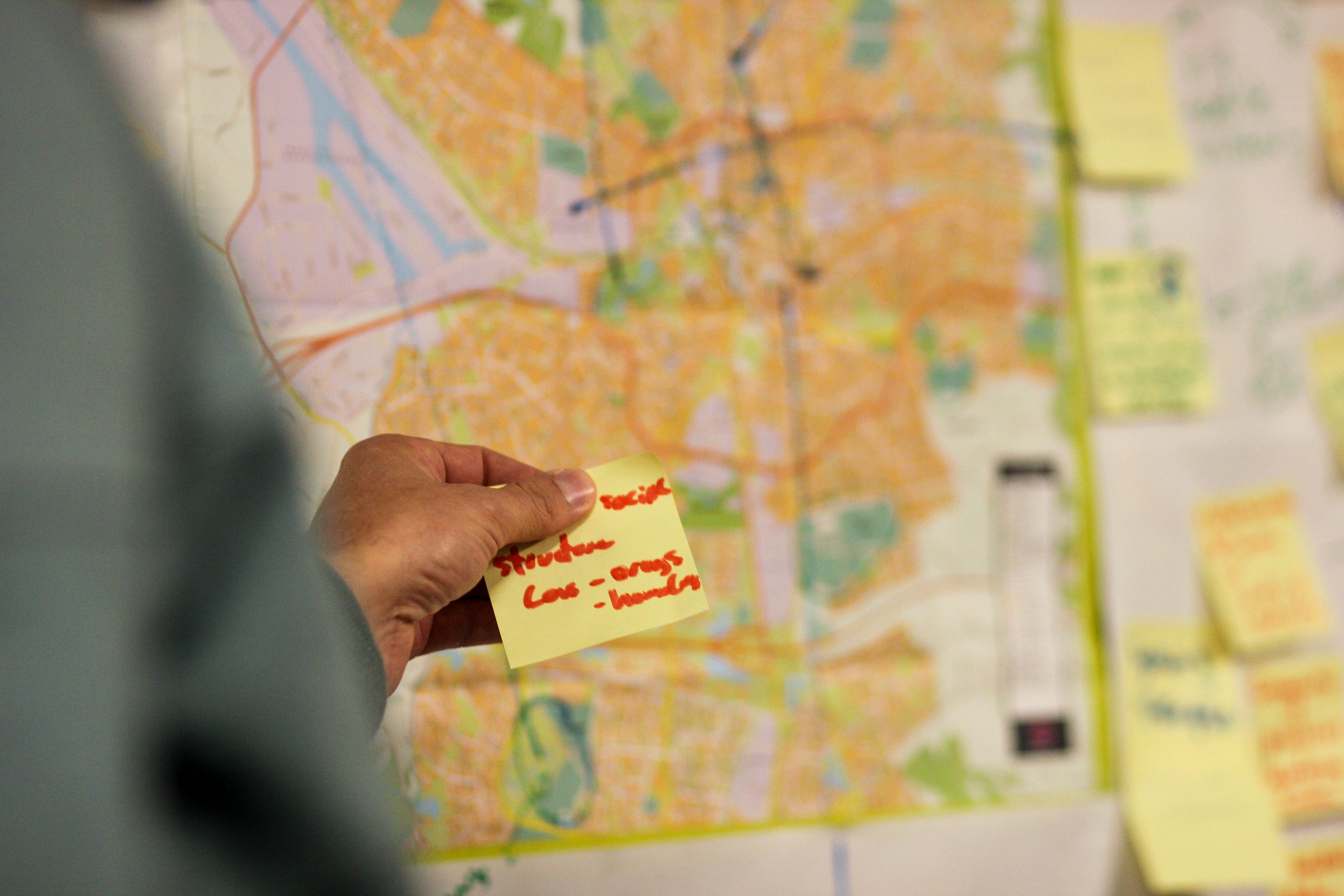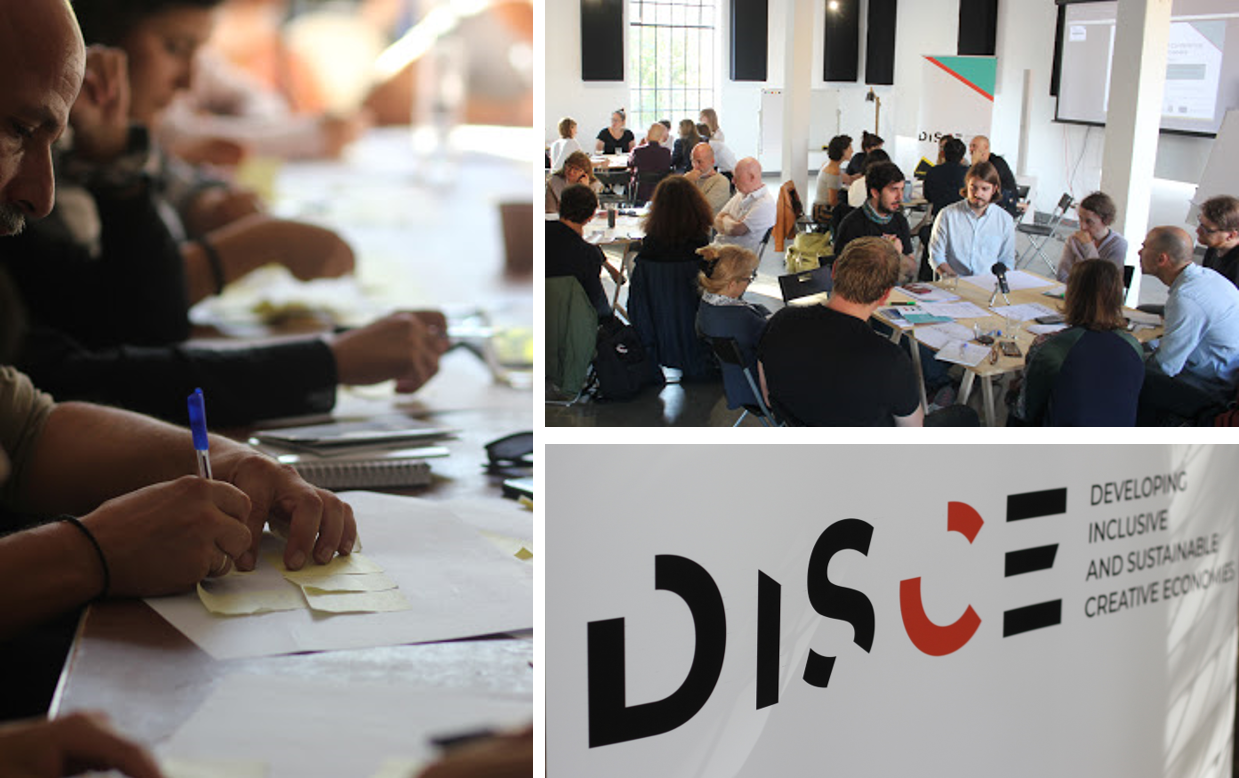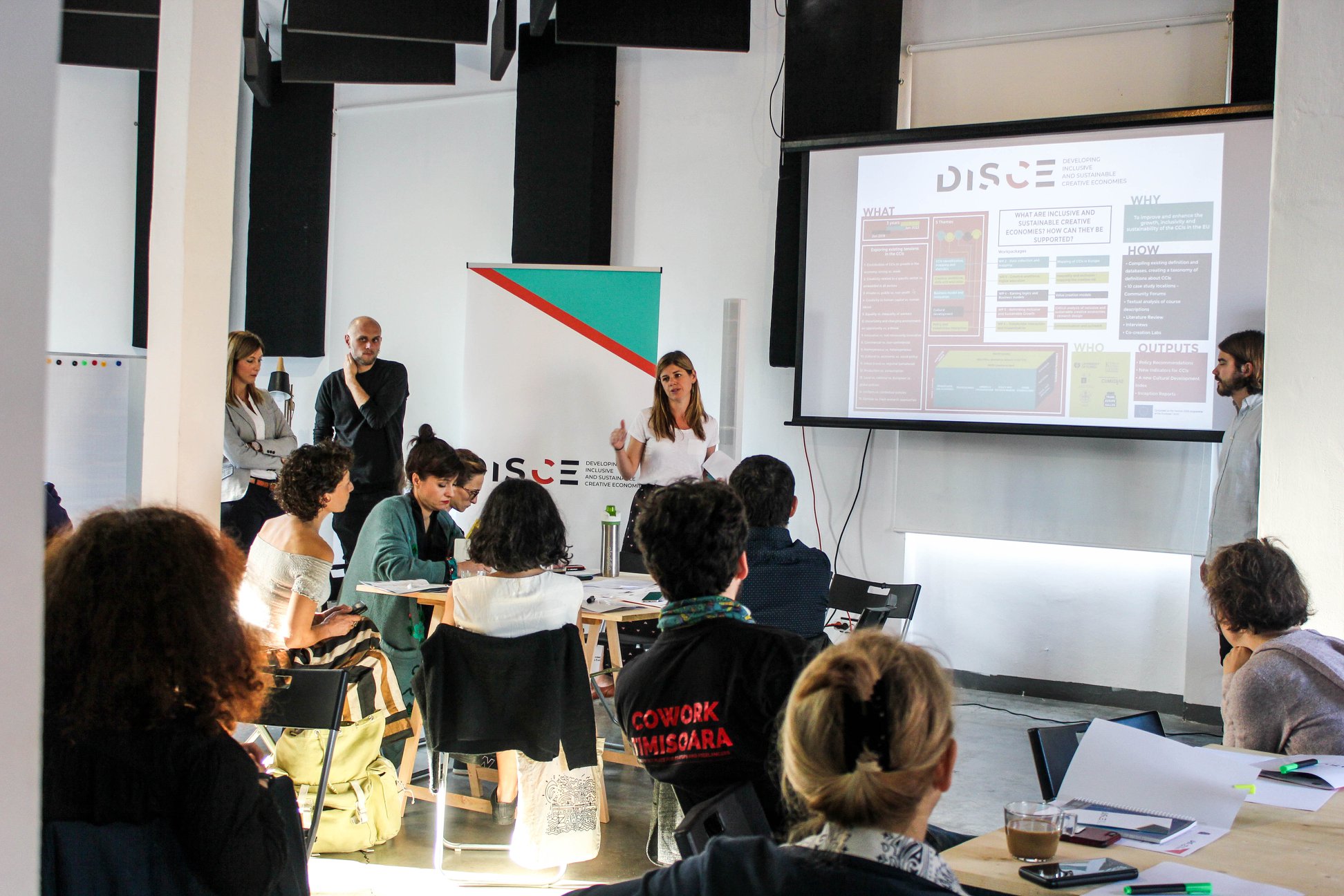The King’s College London Department of Culture, Media and Creative Industries and Policy Evidence Centre Creative Industries Research Frontiers Seminar Series.
Seminar 1. Creative and cultural ecologies: Mapping and understanding
22nd January 2020
Anatomy Museum, King’s College London
On January 22nd, King’s College London hosted the first in a seminar series titled ‘Creative Industries Research Frontiers’. This series is jointly organised by the DISCE team at Department of Culture, Media and Creative Industries (CMCI) and the Creative Industries Policy Evidence Centre (PEC) through a shared commitment to exploring the emerging issues and research challenges linked to the creative economy. The first seminar, ‘Creative and cultural ecologies: Mapping and understanding’ brought together academics, practitioners and policy makers to share knowledge and empirical research on the relevance of creative and cultural ecologies.
The keynote presentation, Why Should We Care About Creative and Cultural Ecologies? Six Provocations by Nick Wilson and Jonathan Gross from CMCI directly responded to the topic. Drawing from their wide research in this area, the paper outlined the relevance of the ecological approach to understanding the value and sustainability of the creative economy and its relationship with cultural democracy.
Following the keynote, four research papers further developed this topic. Victoria Barker from the University of Derby introduced her work on the creative ecology in the West Midlands. Drawing from three case studies with local theatre’s she was able to present a broader understanding of the institutions and networks that contribute to a local creative economy.
Nicole Foster from the University of the West of England presented findings from research on a creative cluster in the South West. In her summary of the cluster criticism she applied cultural ecology perspective to higher the role that diverse, informal and voluntary networks, public funding bodies, universities, audiences, users and intermediaries play in cultural work.
Athena Piterou from the University of Greenwich presented research on the development of a cultural and creative industry cluster in the city of George Town, Penang, Malaysia. The city, which was awarded World Heritage Status in 2008 provided a space to analyse the rise of the creative city with a geographical focus on South East Asia.
The final paper, given by Ana Isabel Escalona from the University of Zaragoza, drew from a study that applied the European Union’s Cultural and Creative Cities Monitor methodology to small cities (50-100k inhabitants) across Spain. She was able to present analysis on both metropolitan, non-metropolitan geographical locations and tourist destinations to explore the relationship between cultural vibrancy and the local creative economy.
The panel, chaired by Bruce Tether from Manchester University included responses from Paul Bristow, Director, Strategic Partnerships Arts Council England; Holly Donagh, Deputy Chief Executive, A New Direction; Clive Gillman, Director, Creative Industries Creative Scotland; Mary-Alice Stack, Chief Executive, Creative United and Denise Proctor, former Chief Executive, Noise Festival and current Creative & Digital Industries Representative for Cheshire & Warrington LEP responded to the papers.
It was useful to hear their reflections on the ecology approach to understanding the value and inter-connectedness of creative ecosystems, and how that approach can be applied in a policy context. Acknowledging the wider political challenges, including the tensions between research findings and political agendas, there was consensus on the value of re-thinking creative development at the local and national level across a broader network of stakeholders.
The next seminar in this series focuses on the value of creative arts Higher Education and includes a keynote from Franz Buscha, University of Westminster with four research papers and a panel discussion. For further details and register, check the event page on Eventbrite.




